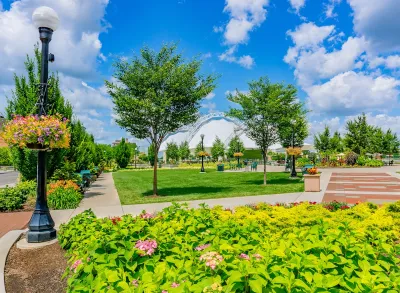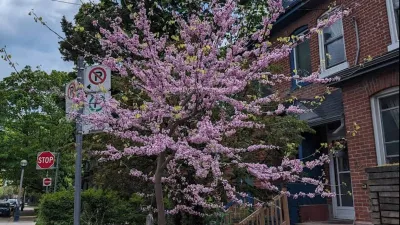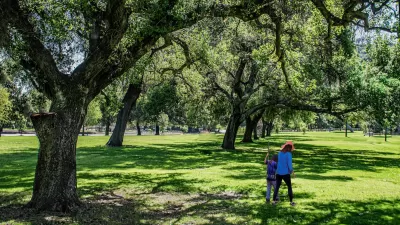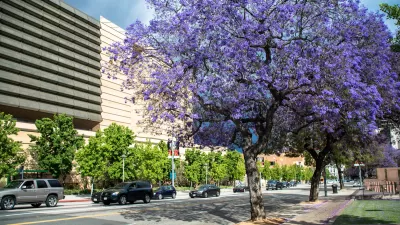Dayton is developing an urban forest master plan, using a $2 million grant to expand its tree canopy, address decades of tree loss, and enhance environmental equity across the city.

Dayton's tree canopy covers less than a quarter of most neighborhoods. Some areas, including downtown and Midtown, have particularly low coverage at under 6%. As reported by Cornelius Frolik, the city has lost thousands of street trees in recent decades due to factors like the emerald ash borer infestation and severe storms, including the 2019 Memorial Day tornadoes. Recognizing the benefits of urban forests in reducing pollution, lowering temperatures, and enhancing neighborhood aesthetics, the city is developing a comprehensive plan to expand and maintain its tree canopy. This effort aligns with broader environmental and sustainability goals that many Dayton residents support.
To guide its reforestation efforts, Dayton is using a $2 million federal grant to conduct an urban tree inventory, a tree canopy assessment, and develop an urban forest master plan. The assessment will document tree species, conditions, and maintenance needs while identifying potential planting sites. Some neighborhoods, like Germantown Meadows and Cornell Heights, already have over 40% tree cover, but others, such as Webster Station and Midtown, remain well below 10%. The city hopes to use this data to strategically target areas in need of more greenery and plan for long-term investments in tree maintenance.
Dayton has been planting trees annually, with 86 trees added last fall and 300 more set for spring. Between 2017 and 2023, nearly 1,000 trees were planted, but officials acknowledge that more needs to be done to reverse decades of tree loss. Research highlights the connection between tree canopy coverage and equity, with lower-income areas having significantly less greenery than wealthier neighborhoods. While some residents have raised concerns about tree maintenance and potential nuisances, many agree that a stronger urban forest will provide lasting environmental and community benefits. The city’s ongoing efforts aim to enhance tree equity, improve public health, and make Dayton a greener, more livable city for future generations.
FULL STORY: Trees cover less than a quarter of Dayton. The city hopes to change that

Trump Administration Could Effectively End Housing Voucher Program
Federal officials are eyeing major cuts to the Section 8 program that helps millions of low-income households pay rent.

Planetizen Federal Action Tracker
A weekly monitor of how Trump’s orders and actions are impacting planners and planning in America.

Ken Jennings Launches Transit Web Series
The Jeopardy champ wants you to ride public transit.

Rebuilding Smarter: How LA County Is Guiding Fire-Ravaged Communities Toward Resilience
Los Angeles County is leading a coordinated effort to help fire-impacted communities rebuild with resilience by providing recovery resources, promoting fire-wise design, and aligning reconstruction with broader sustainability and climate goals.

When Borders Blur: Regional Collaboration in Action
As regional challenges outgrow city boundaries, “When Borders Blur” explores how cross-jurisdictional collaboration can drive smarter, more resilient urban planning, sharing real-world lessons from thriving partnerships across North America.

Philadelphia Is Expanding its Network of Roundabouts
Roundabouts are widely shown to decrease traffic speed, reduce congestion, and improve efficiency.
Urban Design for Planners 1: Software Tools
This six-course series explores essential urban design concepts using open source software and equips planners with the tools they need to participate fully in the urban design process.
Planning for Universal Design
Learn the tools for implementing Universal Design in planning regulations.
Ada County Highway District
Clanton & Associates, Inc.
Jessamine County Fiscal Court
Institute for Housing and Urban Development Studies (IHS)
City of Grandview
Harvard GSD Executive Education
Toledo-Lucas County Plan Commissions
Salt Lake City
NYU Wagner Graduate School of Public Service





























